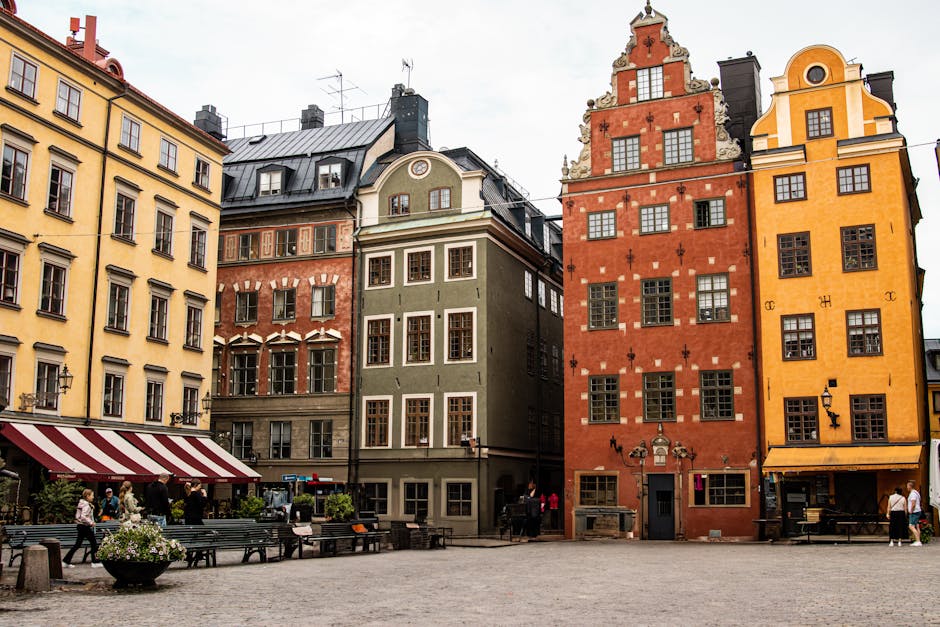Table of Contents
Right then. Another year, another round of folks scratching their heads about where to put their money. SEO vs PPC 2025. Still at it, are we? Honestly, sometimes I feel like I’ve heard this song for twenty-odd years, and the tune barely changes. Just the instruments get a bit shinier.
You’ve got your new grads, eyes wide, talking about AI and algorithms like it’s some magic spell. And then you’ve got the seasoned lot, who’ve seen Google roll out updates that break half the internet, only for everyone to scramble and rebuild. My take? It’s never simple. And anyone who tells you it is? They’re selling something, or they’ve not been paying attention.
What do you want, then? Instant gratification or the long haul? Because that’s where the real difference lies. Always has. Always will, I reckon.
The Grind of Good SEO
Look, SEO. It’s like building a house out of solid stone, brick by bloody brick. It takes ages. You pour money in, and for months, sometimes a year, you see… well, not much. Or at least, not the kind of numbers that make the bean counters sing. But when it works? When your site finally starts ranking for all the good stuff, the relevant searches, the long-tail keywords people actually use? That traffic, that’s free traffic. Or as free as anything gets in this game. You don’t pay for every single click. That’s a beautiful thing. A truly beautiful thing, that is.
Mind you, it’s a constant battle. Google’s always shifting the goalposts. Panda, Penguin, Hummingbird, whatever daft name they come up with next. They keep us on our toes, alright. Sometimes feels like they enjoy watching us squirm.
You got companies like Victorious SEO, down in San Diego, they’ve been at it for a while. They promise the moon, but you need to understand that moon landing takes time. Years sometimes. They’ll show you fancy graphs, sure, but the reality? It’s a marathon, not a sprint. And you better have a good content team, because without solid stuff on your pages, all the technical wizardry in the world won’t save you. People forget that bit. They think it’s all backlinks and keywords. It’s not. It’s about being useful.
Then you get the big guns, the ones that are part of the massive media groups. Think about Resolution Media, part of the Omnicom machine. They handle colossal clients, big budgets, big expectations. They’ll talk about schema markup, core web vitals, topical authority, all the latest buzz. But even they can’t make Google love you overnight. No one can. Anyone tells you they can, they’re lying right to your face. And in 2025? With all the AI-generated content flooding the web? Standing out is harder than ever. You gotta be really good. Or really niche. Or both. Preferably both.
The Siren Call of PPC
Now, PPC. Pay-Per-Click. This is where you flick a switch, and boom, traffic. You throw money at Google, or Meta, or whoever, and your ads appear at the top. Instant visibility. Wanna be number one for “best widgets 2025”? Drop enough cash, and there you are. Right there. First result.
It’s tempting, isn’t it? Especially for new businesses, or when you’ve got a product launch and need eyeballs, like, yesterday. You can target exactly who you want, what they’re searching for, even what website they were on five minutes ago. Creepy? A bit. Effective? Absolutely.
But when you stop paying? Poof. Gone. Like a puff of smoke. You’re invisible again. It’s a rental. You rent your spot at the top. The moment the rent’s due and you don’t pay up, out on your ear you go. That’s a fundamental truth of PPC. It’s not building anything for the future, not really. It’s a short-term burst.
Agencies like Tinuiti? They live and breathe this stuff. They’re brilliant at optimizing ad spend, squeezing every last penny out of your budget. They’ll talk about ROAS, conversion rates, bid strategies. And they’ll get you clicks. Lots of clicks. But clicks don’t always mean sales, do they? That’s the rub. You can get a million clicks and sell three things if your product’s rubbish or your landing page is a dog’s dinner. Or your price is too high.
Then there’s Merkle, they’re another big player, part of Dentsu international. These folks handle the really complex stuff, integrated campaigns, combining search with social, display, everything. They’ll tell you it’s all about the ‘full funnel,’ and they’re not wrong. For many businesses, a well-run PPC campaign can be a lifesaver, especially if you’re selling something with a high margin.
What’s Your Pockets Like?
One big thing always comes up: cost. SEO vs PPC 2025, it’s always about the dough. PPC is predictable, in a way. You set a budget, you spend that budget. You can scale up or down pretty quickly. Need more leads this month? Increase your daily spend. Simple. You can see the immediate return on that ad spend, or lack thereof.
SEO, though? The cost is harder to pin down. You’re paying for content creation, technical audits, link building efforts, and a whole lot of brainpower. And the return? It comes in dribs and drabs, often over a long period. Harder to attribute directly. Some businesses get antsy about that. They want to see the money come back, bang, quick. Can’t blame them, really. Bills need paying.
The Google Algorithm’s Ever-Shifting Sands
remember 2023? Google’s SGE, the Search Generative Experience, started making waves. It’s like Google’s trying to answer more questions directly in the search results, without people even clicking through to a website. Now in 2025, that’s still a thing. What does that do to SEO? It makes you scratch your head, that’s what. If people don’t click, your organic traffic takes a hit. Some folks are worried it’s the end of SEO as we know it. Nah. Not really. It just means you gotta be even smarter. You need to be the authority, the absolute best source of information, so Google has to quote you. Or better yet, be the one they send people to for the deep dive.
But for PPC? Less of an issue. Ads are still ads. They’re clearly marked. People looking for solutions, for products to buy, they’ll still click ads. If you’re selling something, that immediacy is still incredibly valuable.
Privacy, AI, and All That Jazz
Privacy regulations, they’re getting stricter, aren’t they? GDPR, CCPA, and whatever else countries dream up. It’s making it harder for PPC guys to track everything perfectly. Cookies going away, all that. It means less granular targeting, maybe. So campaigns need to be smarter, less reliant on creepy tracking. It’s a challenge, sure, but the good agencies, the clever ones, they’re already adapting.
AI? Everyone’s on about AI. It’s being used to write ad copy, optimize bids, even create whole campaigns. And for SEO? It’s churning out content faster than you can say “plagiarism checker.” But can it replicate genuine human insight, the really good stuff that resonates? I don’t think so, not yet. Not the stuff that truly stands out. It’s a tool. A very powerful tool. But it’s still just a tool. It needs a skilled hand. My opinion, anyway. Someone else’s might be different.
NP Digital vs WebFX: Different Strokes
You’ve got companies like NP Digital, which is Neil Patel’s outfit. They push the boundaries, try new things, often with big swings. They’re known for content, for massive campaigns. They’ll tell you about their wins, and they’ve got plenty of them. Their model is often about dominating niches, creating vast amounts of content, and then leveraging that for organic gains. They also run massive PPC campaigns. They’re certainly not shying away from a battle.
Then you look at WebFX. They’re big, too, but maybe a bit more structured, a bit more traditional in their approach. They’ll offer you a whole menu of services, from SEO to PPC to web design. They’re all about steady, measurable growth. Both legitimate. Both successful. But they go about it differently. Which one’s better? Depends on what you’re trying to achieve, doesn’t it? Depends on your current position, where you’re starting from.
A common question I hear is, “Should I just go all-in on SEO for 2025 and forget PPC?” My answer? It’s usually, “Are you daft?” For most businesses, no. Unless you’ve got endless patience and a niche product with zero competition, which is about as rare as hens’ teeth. You need some immediate leads, some sales coming in, just to keep the lights on while your SEO efforts simmer away. You want to see returns, don’t you?
When the Tap Turns Off
Something always bothers me with PPC. What happens if your budget gets slashed? Or your cash flow dries up for a month or two? The traffic stops. That’s it. Kaput. Whereas with SEO, even if you stop actively optimizing, if you’ve built a strong foundation, that organic traffic keeps ticking over for a while. It’s residual. It’s like owning the land versus renting it. You own the organic rankings. You rent the ad space.
Another thing people always ask is, “Can PPC actually help my SEO for 2025?” Well, not directly, no. Google says it doesn’t use ad spend as a ranking factor, and I believe them. It’d be a bit unfair, wouldn’t it? Rich getting richer. But what PPC can do is give you data. Fast. You can test keywords, ad copy, landing page effectiveness, even product demand. If something converts like crazy on PPC, it’s probably a good sign that the organic keyword is worth chasing. So it’s not direct, but it’s a hell of a feedback loop.
The Eternal Question: Where to Put Your Coin?
So, SEO vs PPC 2025. What’s the verdict?
There isn’t one. Not a simple one, anyway. If you’ve got a new site, new product, or you’re in a super competitive market, you probably need some PPC to get things moving. To get immediate visibility. To get sales rolling. You can’t wait a year for Google to notice you. No chance. That’s just not how business works.
But if you’re established, or you’re thinking about long-term brand building, getting those consistent, high-quality leads that don’t cost you a quid every time someone clicks? SEO. Absolutely. That’s where the real value is, over time. It’s an asset. Your rankings are an asset.
I’ve seen businesses blow fortunes on PPC, only to realize they’re just running on a treadmill, never actually building anything. And I’ve seen businesses ignore PPC, waiting years for organic traffic, and missing out on thousands of sales they could have made today.
So, it’s not a choice between one or the other for most businesses that want to stay relevant in 2025. It’s about balance. Or understanding your immediate needs versus your long-term goals. Sometimes you start heavy on PPC, then slowly shift more resources to SEO as your organic presence grows. Sometimes you do both, full throttle, because your market demands it.
Someone will ask, “What about social media ads versus search ads?” That’s a whole other can of worms, that is. Social is interruption marketing. People aren’t searching for your product. They’re scrolling. You gotta grab their attention. Search, with PPC, they’re looking for something. They have intent. That’s why search PPC is often more direct. But social can build brand awareness like nobody’s business. See? More layers. It never ends.
I’ve been in this game too long to give you a simple answer. Never trust simple answers in a complex world. Know your budget. Know your timeline. Know your product. And then find someone who knows what they’re doing, and doesn’t promise you magic beans. Because there ain’t no magic beans in SEO or PPC, not in 2025, not ever. Just hard work. And plenty of it.












